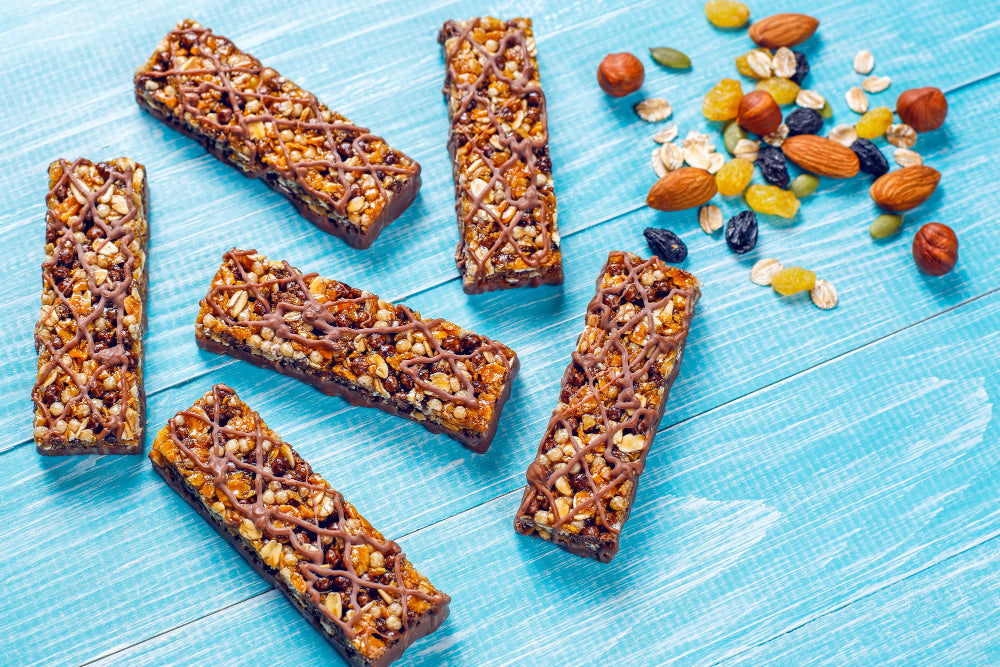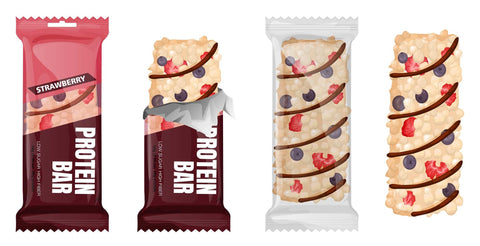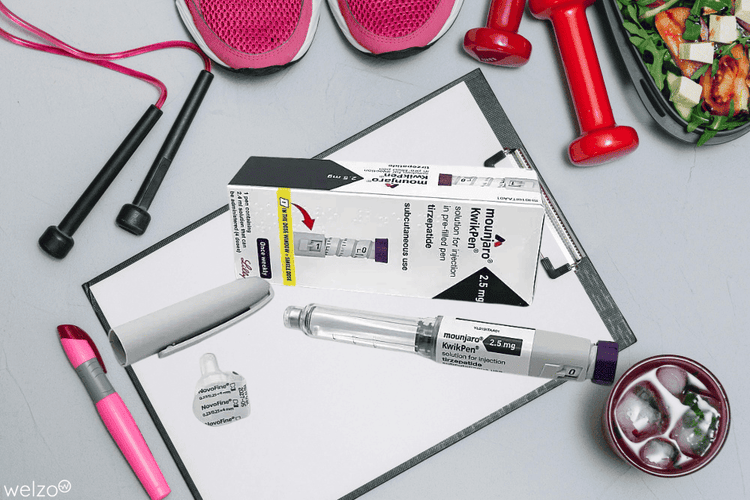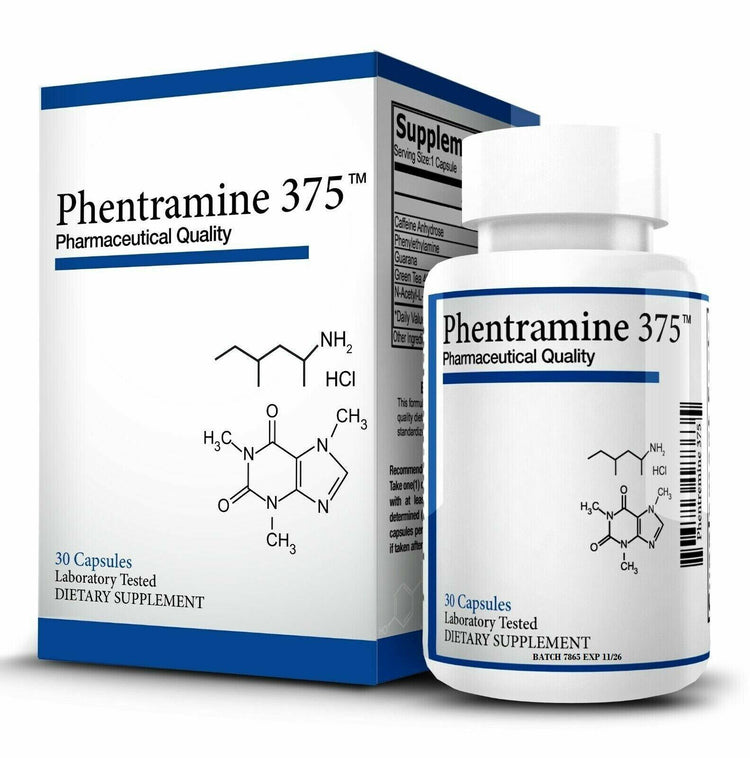Are Protein Bars Good for Weight Loss?


Related products
Weight management is a multifaceted health issue that hinges on the equilibrium between caloric intake and expenditure, nutritional balance, and regular physical activity. The modern diet landscape has been enriched with various supplements, among which protein bars have emerged as a favoured option for individuals seeking convenient nutritional solutions. This article aims to dissect the utility of protein bars within the context of weight loss, scrutinising their efficacy and potential role in a balanced diet. Protein bars are now one of the most popular forms of protein supplements on the market.
What are Protein Bars?
Protein bars are engineered food products designed to provide a high protein content alongside various nutrients in a compact, consumable form. Typically, these bars contain a blend of proteins (whey, soy, pea, or rice protein), carbohydrates (including fibre), fats, added sugars, and a spectrum of vitamins and minerals. Their formulations are tailored to meet specific dietary needs or support certain health outcomes, such as weight loss or muscle gain.
Nutritional Profile
The nutritional composition of protein bars can vary significantly across different brands and purposes. A standard protein bar usually offers between 10 to 20 grams of protein, a variable carbohydrate content, moderate amounts of dietary fibre, and a caloric total that can range widely but is often between 200 to 300 calories per bar. Notably, some bars may contain elevated levels of sugar or sugar alcohols to enhance taste, which is a crucial consideration for weight management.
Market Variety
The diversity within the protein bar market accommodates a broad spectrum of dietary preferences and goals. Meal replacement bars, for instance, are formulated to provide a balanced macronutrient profile that can substitute for a conventional meal. Low-carb and high-protein variants cater to those following specific dietary regimes such as ketogenic or high-protein, low-carbohydrate diets, underscoring the versatility of protein bars as a dietary supplement.
What is the Role of Protein in Weight Loss?
Protein plays a pivotal role in weight management strategies due to its effects on satiety, muscle maintenance, and metabolic rate. Consumption of protein-rich foods or supplements can lead to increased feelings of fullness, reducing overall caloric intake. Dr. Emily Smith, a nutritionist, emphasises, "Protein is critical in the preservation of lean muscle mass during weight loss, preventing metabolism from slowing down." This preservation of lean muscle tissue ensures that the body continues to burn calories efficiently, even in a caloric deficit.
Comparison with Other Protein Sources
While protein bars offer a convenient source of protein, it is essential to compare their nutritional value against natural food sources. Whole foods such as lean meats, fish, legumes, and dairy not only provide protein but also deliver a broader range of nutrients without the added sugars and preservatives found in some bars. According to a study published in the Journal of Nutrition, whole food sources of protein are associated with greater dietary satisfaction compared to supplemental forms, suggesting a potential advantage in weight loss efforts.
What are the Benefits of Protein Bars for Weight Loss?
Protein bars offer several benefits for those targeting weight loss, primarily through their high protein content, which aids in satiety and helps maintain muscle mass during a caloric deficit, thereby supporting a higher metabolic rate. They are conveniently portable, making it easier to manage hunger and nutritional intake without resorting to less healthy options when on the go. Furthermore, with controlled portions, they simplify calorie counting, ensuring individuals can stick to their dietary goals with precision. However, for optimal results, selecting protein bars with low sugar content and integrating them into a balanced diet alongside regular exercise is crucial.
Convenience and Portability
For individuals with hectic lifestyles, protein bars offer an undeniable advantage in convenience and portability. This makes adhering to a nutritious, protein-rich diet more feasible, particularly when traditional meals are not an option. Dr. John Davis, a weight management expert, notes, "Protein bars can be a strategic tool in managing hunger and providing essential nutrients without the need for preparation time."
Controlled Portions and Caloric Intake
The pre-packaged nature of protein bars allows for precise control over portion size and caloric intake, a key component in weight loss treatment. This aspect can aid individuals in maintaining a calorie deficit, a fundamental requirement for weight loss, by providing a measured energy intake that can be easily integrated into a daily dietary plan.
Muscle Recovery and Growth
Protein bars can also play a role in supporting muscle recovery and growth when combined with regular exercise, a factor that contributes to a more efficient metabolism. The availability of essential amino acids in protein bars helps to repair and build muscle tissue, an action that is particularly beneficial after exercise sessions.
However, the efficacy of protein bars for weight loss is contingent upon their incorporation into a balanced and varied diet, mindful of the potential drawbacks and considerations discussed in the following sections.

Choosing the Right Protein Bar for Weight Loss
In the pursuit of weight loss, selecting a protein bar with an optimal nutritional profile is paramount. A bar high in protein, low in sugar, and rich in dietary fibre is ideal. The high protein content supports muscle maintenance and satiety, while low sugar levels help in managing caloric intake and avoiding spikes in blood glucose. Dietary fibre is crucial for digestive health and can enhance the feeling of fullness, further aiding in weight control. Dr. Sarah Lewis, a dietitian, advises, "Choose protein bars with at least 20 grams of protein, less than 5 grams of sugar, and over 5 grams of fibre for maximum benefits in weight loss."
Understanding Your Dietary Needs
It is also essential to consider any specific dietary restrictions or preferences, such as allergies, or if you're following a vegetarian or vegan diet. Many protein bars are formulated with specific dietary considerations in mind, using plant-based proteins like pea or hemp for vegans and avoiding common allergens like nuts or soy. Assessing personal health conditions and dietary limitations is crucial in selecting a protein bar that aligns with your nutritional needs and supports your weight loss goals.
Recommendations for Integration into a Balanced Diet
Incorporating protein bars into a weight loss regimen should be done judiciously, ensuring they complement a diet rich in whole foods. They should not replace whole meals regularly but can be used effectively as snacks or post-workout recovery aids. Dr. Lewis recommends, "Limit your consumption to one protein bar per day, preferably as a post-exercise meal or a snack to manage hunger between meals."
How to add Protein Bard to your Diet?
For effective integration of protein bars into a weight loss diet, it is crucial to monitor overall caloric intake and maintain a balanced diet. Using protein bars as a substitute for high-calorie snacks or to manage hunger can be particularly effective. For instance, replacing a mid-morning biscuit with a low-sugar, high-protein bar can reduce caloric intake while sustaining energy levels until the next meal.
Personal Success Stories
While individual results may vary, many have found success in incorporating protein bars into their weight loss journey. Case studies often highlight the role of protein bars in providing a convenient and effective means to manage dietary intake and support an active lifestyle. However, it is important to note that these success stories also emphasise the importance of a comprehensive approach to weight loss, including regular exercise and dietary modifications.
People Also Ask
Will I Gain Weight if I Eat Protein Bars?
Eating protein bars can contribute to weight gain if they cause you to exceed your daily caloric needs. Protein bars, especially those high in sugars and fats, can be calorie-dense. If consumed in addition to your regular diet without compensating through increased physical activity or adjustments in other meals, they can lead to a caloric surplus, resulting in weight gain. It's essential to consider the nutritional content of the protein bar and how it fits into your overall dietary plan. Incorporating protein bars as a replacement for other snacks or part of a meal, rather than an addition, can help manage calorie intake.
Is It OK to Eat a Protein Bar Every Day?
Eating a protein bar every day can be acceptable as part of a balanced diet, provided the bars are carefully selected based on their nutritional profile and your dietary needs. It's crucial to choose protein bars that are low in sugar and high in protein and fibre, and that fit into your daily caloric and nutritional requirements. Regular consumption of protein bars should not replace the intake of whole foods, which are essential for a balanced diet. Whole foods offer a broader range of nutrients, including vitamins, minerals, and antioxidants, that are not always present in protein bars.
Is a Protein Bar a Good Meal Replacement?
Protein bars can serve as a meal replacement in certain contexts, particularly when you're on the go and unable to consume a traditional meal. However, they are typically more suited as a snack or supplement rather than a regular substitute for meals. For a protein bar to be considered a good meal replacement, it should have a balanced nutritional profile, including adequate levels of protein, healthy fats, carbohydrates, fibre, and essential vitamins and minerals. Even the best-formulated meal replacement bars might lack the variety of nutrients provided by whole foods. Therefore, it's recommended to use them sparingly and focus on balanced meals as the primary source of nutrition.
Conclusion
Protein bars can be a beneficial component of a weight loss strategy, offering convenience, portion control, and nutritional support for muscle maintenance and recovery. However, their effectiveness is contingent upon careful selection based on nutritional content and individual dietary needs, as well as their integration into a balanced and varied diet. While protein bars provide a practical solution to dietary challenges in modern lifestyles, they should complement, not replace, the foundational elements of healthy eating and regular physical activity in the pursuit of weight loss and overall well-being.












 Rated Excellent by 26,523+ Reviews
Rated Excellent by 26,523+ Reviews